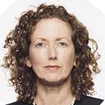The Voluntary Assisted Dying Bill 2022 (NSW) (Bill) passed through New South Wales Parliament on 19 May 2022. The Bill, previously the Voluntary Assisted Dying Bill 2021,was introduced by Alex Greenwich MLA as a private member's bill in October 2021. This followed previous unsuccessful attempts at passing such legislation in NSW, dating back to 2002, leaving NSW trailing behind all other states in this area.
The Bill was initially passed in the Legislative Assembly, with amendments, on 26 November 2021. In the Senate, it was passed with amendments on its third reading ( access the second reading speech here). The explanatory memorandum can be found here.
The premise of the legislation has both passionate supporters and detractors and we don't seek to deal with its philosophical basis here, rather, we outline its structure and key concepts below.
Eligibility
To be eligible for access to voluntary assisted dying, a person must be 18 years or older and be an Australian citizen. They must be likely to die from a neurodegenerative disease or condition within one year, or, from another condition within six months. The disease must cause suffering that cannot be relieved in a way that is tolerable to the person. The person seeking to access voluntary assisted dying must have capacity to make the decision for themselves, be acting voluntarily, without pressure and be assessed by two medical practitioners.
It should be noted that there are restrictions on health care workers initiating discussions about accessing voluntary assisted dying, unless accompanied by information about treatment options.
Role of medical practitioners
Medical practitioners who receive a request to access voluntary assisted dying must notify the Voluntary Assisted Dying Board (Board) of the request. If the medical practitioner accepts the request, that practitioner becomes the coordinating practitioner. The coordinating practitioner assesses the person against the eligibility criteria and must notify the Board after completing the assessment.
If eligible, the coordinating practitioner must refer the person to another practitioner for assessment. Again, the Board must be notified. If the medical practitioner accepts the referral, the practitioner becomes the consulting practitioner. The consulting practitioner also assesses the person against the eligibility criteria and must notify the Board after completing the assessment.
Medical practitioners may refuse a request on a number of grounds, including that they have a conscientious objection to voluntary assisted dying.
An eligible person may then make a declaration of their intention, capacity and that the request is voluntary, which must be witnessed.
A person who has made a declaration may then make a final request to access voluntary assisted dying to the coordinating practitioner. Again, the Board must be notified, as well as to the outcome of the final review.
The person then makes an administration decision, either for self-administration or administration by an administering practitioner. The coordinating practitioner then applies to the Board for a voluntary assisted dying substance authorisation for the person. The Board may decline if the required documents have not been provided or if it suspects the requirements of the legislation have not been met.
If authority is granted, the coordinating practitioner can prescribe the approved substance. Again, the Board must be notified throughout.
Health establishments and residential facilities
Health establishments and residential facilities may decide not to be involved in voluntary assisted dying and may refuse to have their employees involved, whilst at the facility or establishment. There are particular requirements around publication of notice of this election and requirements around not hindering access to information and services, particularly for residential facilities that have made an election.
Review by the Supreme Court
An eligible applicant (including the person) may apply to the Supreme Court for judicial review of a decision of the coordinating practitioner or the consulting practitioner in the first, consulting or final assessment. Decisions of the Board to decline authorisation are also subject to judicial review. Hearings are to be conducted in private.
General
There are a myriad of offences under the legislation, particularly around notifications to the Board. There are also significant protections for those who are acting in good faith and with reasonable care and skill. They do not incur civil or criminal liability and will not be regarded as having contravened professional ethics or conduct standards.
The way forward
At the date of this article, the Bill, as passed by both houses, awaits assent.
It will come into effect following an 18 month implementation period, during which NSW Health will confront the significant task of working together with the community and a range of health and aged care stakeholders to implement its framework. That will include the preparation of a regulation and other instruments, as well as the development of training for participating practitioners.
This publication does not deal with every important topic or change in law and is not intended to be relied upon as a substitute for legal or other advice that may be relevant to the reader's specific circumstances. If you have found this publication of interest and would like to know more or wish to obtain legal advice relevant to your circumstances please contact one of the named individuals listed.

